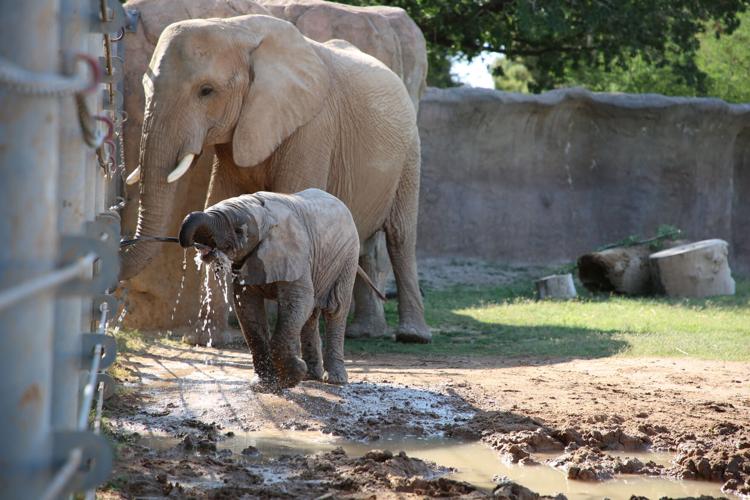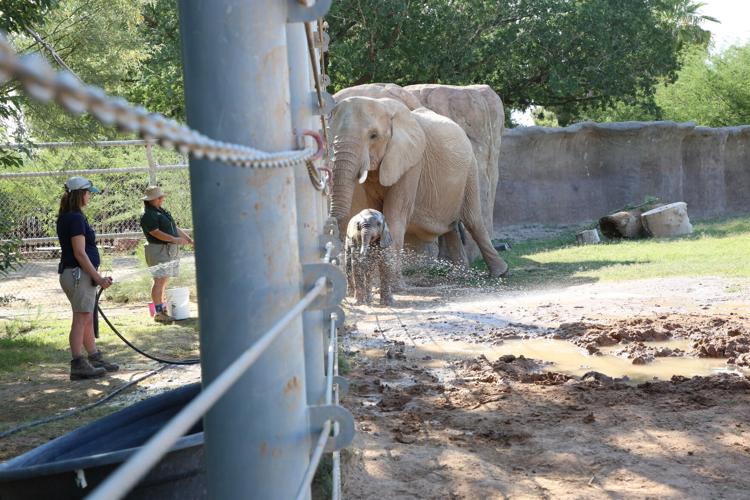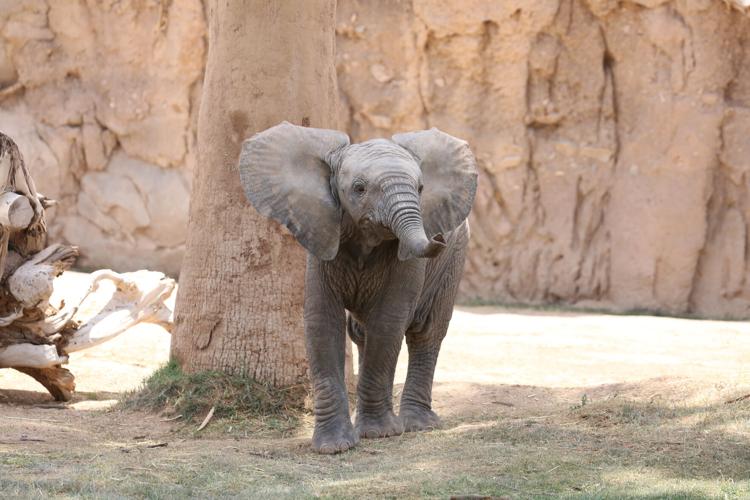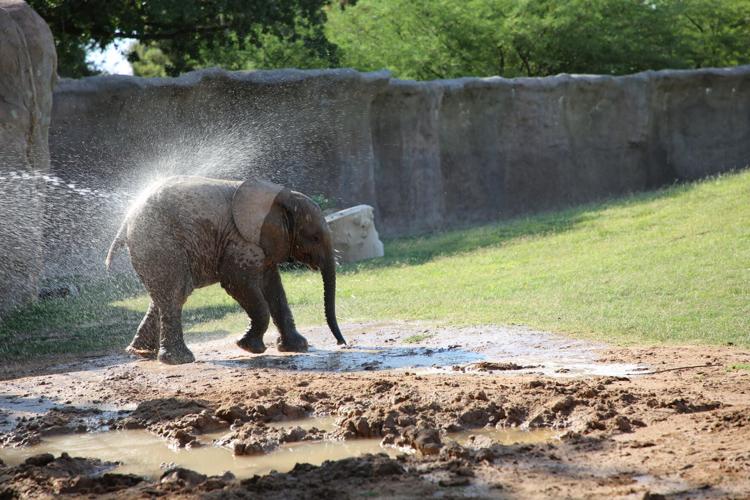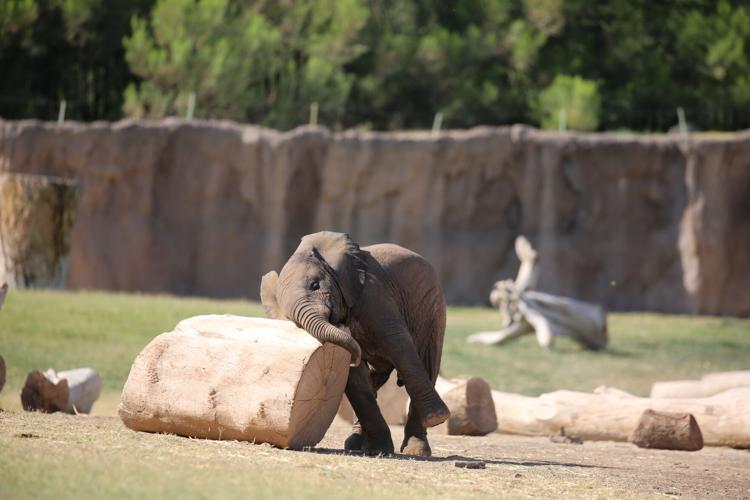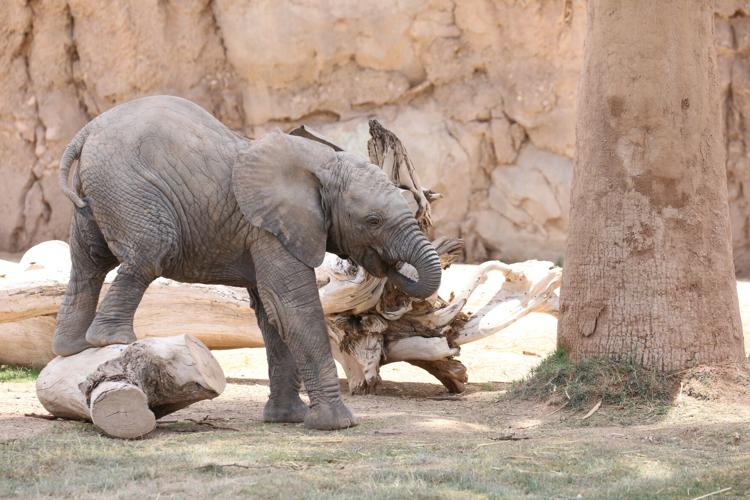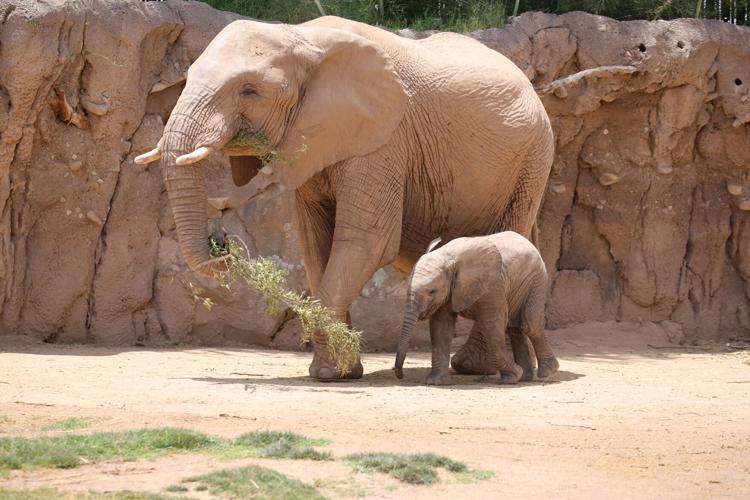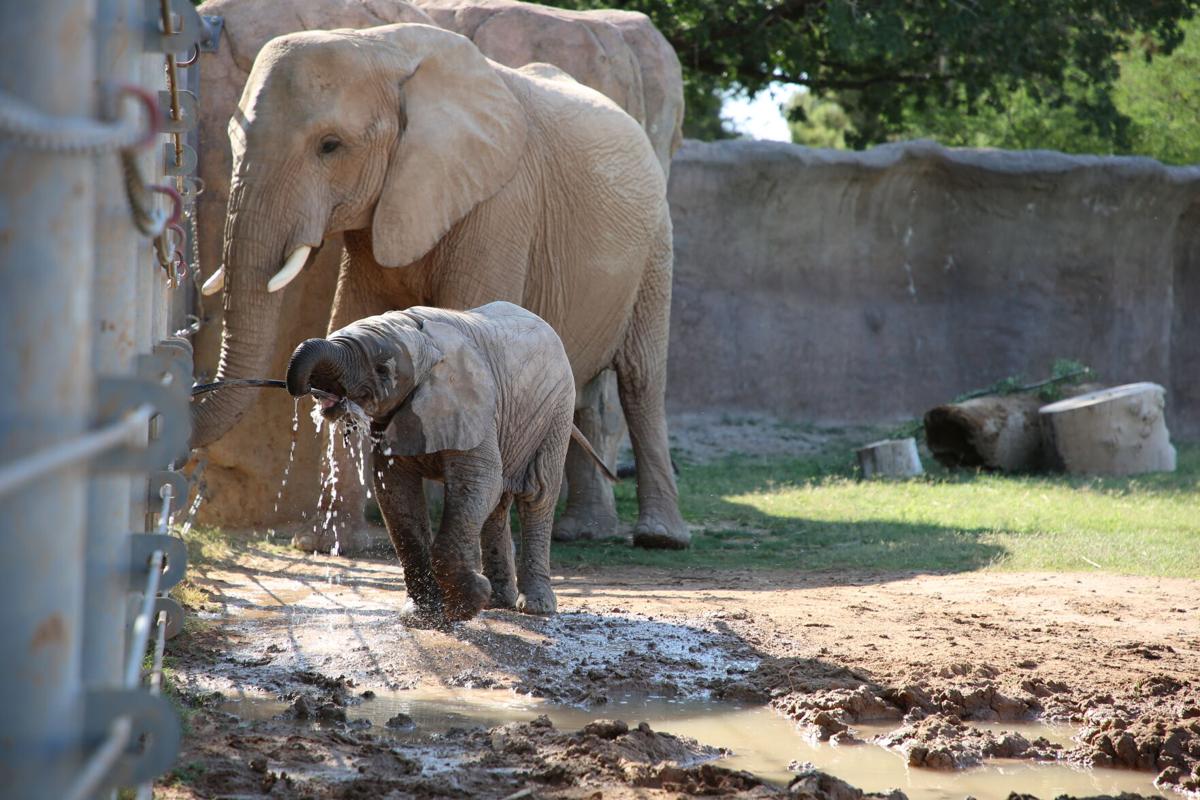Elephants use their trunks for a long list of reasons: eating, drinking, smelling, socializing.
But trunks have about 40,000 individual muscles — and babies have to learn to use them.
“Watching baby elephants figure that out — it’s kind of like trying to make a noodle work,” says Reid Park Zoo elephant care specialist Mara Eisenbarth.

Meru loves to explore her habitat, including climbing over and around logs.
Elephant calf Meru was born on March 8 to mama Semba at Reid Park Zoo, 3400 E. Zoo Court. The 486-pound elephant calf joins sisters 9-year-old Nandi and 4-year-old Penzi, along with allomother Lungile.
Although the 3-month-old is still nursing — which she’ll do for several more years — she’s learning to use her trunk to pick up different pieces of food that the other elephants may have dropped.
“She’s not really eating solids yet, but she’s trying to figure out what everyone else is eating,” Eisenbarth says. “For the most part, (calves) just kind of face plant onto things they want to eat. She’s been more interested in hay and tree branches and she’ll come out with a few pieces.”

Meru is learning to use her trunk and is picking up bits of food that the other elephants may have dropped.
Zoo staff are also helping Meru hone her trunk skills during training sessions, which are always voluntary for the elephants and done through positive reinforcement. Training allows staff to evaluate the elephants’ health and well-being.
“She’s learning to touch the tip of her trunk to our hand and we’ll put food into her trunk instead of into her mouth,” Eisenbarth says.

Now 3 months old, elephant calf Meru is 486 pounds and a little over 3 feet tall.
It’s not always a slam dunk. Just like with human babies, the keepers have lots of patience — and lots of creativity.
“Part of the challenge with a baby is trying to figure out what will hold her attention from day to day, or it could even change from the morning to the afternoon,” Eisenbarth says. “We have to try to come up with new and creative ideas of what’s going to be fun for her. It might not be food. One of her favorite things is this little squirt bottle of water that we can squirt onto the ground or into her mouth or trunk that she really likes.”
“Working with the elephants is very training heavy,” Eisenbarth says. “They’re so intelligent. We get to do a lot of positive-reinforcement training with them to keep them mentally stimulated but also because they can do so much. I went to school for zoo and conservation science but actually doing it in real life — the elephants teach you what you may not have learned in the textbooks.”

Elephant calf Meru loves playing in the hose.
This has also been a big water month for Meru. She loves the hose, she loves to slurp up water, she loves to splash in the streams around the habitat. And similar to our pups at home, she also gets the zoomies.
“It’s exactly what you think of the zoomies,” Eisenbarth says. “She really loves these toys in the barn made out of recycled firehose. She’ll bounce off the walls and run and play with the firehose when Mom’s eating breakfast or having a snack.”
During those bouts of energy, Meru will sometimes let out little baby trumpets — which mostly just sound like tiny squeaks.

At 3 months old, Meru loves to play in the water.
Big sister Nandi is still completely in love with Meru and there's some good news this month: Nandi doesn’t have to play referee between Penzi and the baby nearly as often, Eisenbarth says. If you remember, Penzi wasn’t the biggest fan of Meru a couple months ago.
“We’ve definitely seen some improvement with their relationship,” Eisenbarth says. “Penzi has tried to solicit play from Meru a couple times. A bigger elephant will usually lay down or kneel down to make themselves a bit smaller to be more inviting for younger elephants. We’ve noticed that from Penzi lately.”
Younger calves are also known to put their trunks in their mother’s mouth as a comforting gesture or a way to sample food. Penzi let Meru do that recently.
“It’s definitely not all rainbows and butterflies yet, but it’s going in a positive direction,” Eisenbarth says.

Now 3 months old, Meru loves splashing in water and is learning to use her trunk.
In general, Meru is showing that she has a much bolder personality than her two sisters did at her age.
“She’s so different than those two. When she goes off and explores, she does it without thinking about it. She’s definitely more bold and brave at trying new things,” Eisenbarth says. “Every time she tries to climb over something or tries to show the toys she’s strong and scary, it’s always funny to watch. Baby elephants tend to mimic their adults with how they put their ears out and their head up to look bigger. When a tiny elephant does it, it just makes me smile.
“We just like watching her experience the world and interact with her family.”
Elephant siblings Meru, Penzi and Nandi play in the mud at Reid Park Zoo. Video courtesy Reid Park Zoo


